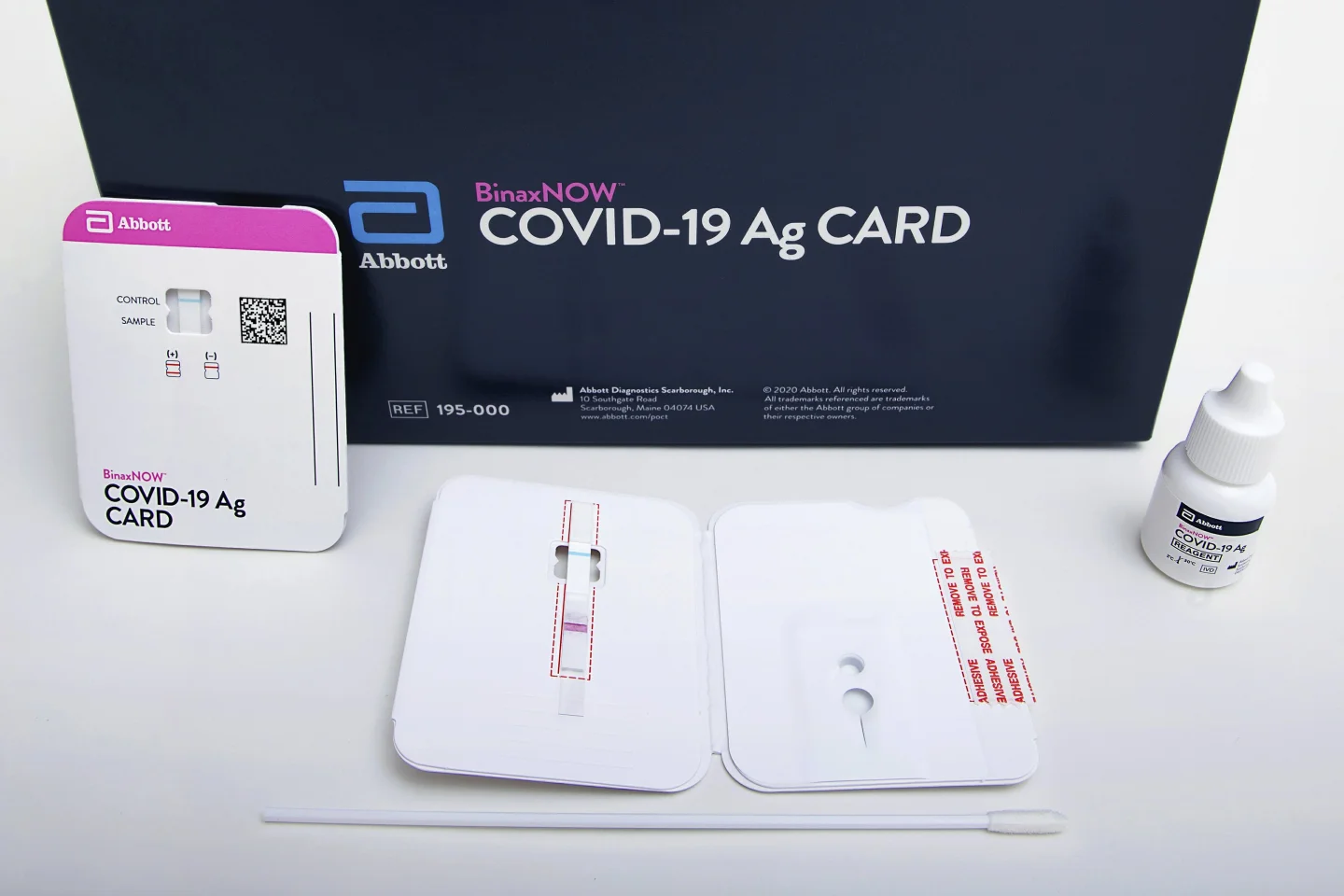Abbott Laboratories CEO Robert Ford addressed attendees at the HLTH conference in Las Vegas on Tuesday, discussing the company’s strategic move into the consumer wearables market.
Abbott, primarily known for its medical devices and diagnostic tools, saw a significant boost in revenue from its rapid Covid test during the pandemic, generating $7.7 billion in 2021 and $8.4 billion in 2022 out of total sales of $43.7 billion.
However, as Covid testing rates have declined, the company reported a sharp drop in Covid test sales to $263 million in the second quarter from $2.3 billion a year earlier.
Anticipating the decrease in Covid testing, Ford emphasized Abbott’s commitment to investing in research and development for other products, particularly its medical devices.
One standout is the FreeStyle Libre continuous glucose monitor (CGM), which eliminates the need for finger pricks by providing real-time glucose measurements via a sensor on the upper arm.
The latest model, FreeStyle Libre 3, has been pivotal in Abbott’s dominance of the global CGM market, contributing over $1.3 billion in sales during the second quarter.
Interestingly, Ford noted that FreeStyle Libre has attracted interest beyond diabetes patients, drawing in healthy individuals curious about monitoring their body’s response to daily activities and food intake. This success prompted Abbott to looking into opportunities in the wearables market further.

“We always believed that we could take this platform that we developed for diabetes and expand it beyond diabetes,” Ford stated. “There’s a much larger population in the world that is actually healthy.”
In January 2022, Abbott introduced Lingo, a wearable sensor currently available in the U.K., designed to track glucose levels and offer personalized health coaching via an accompanying app.
Ford expressed optimism about launching Lingo in the U.S. next year, emphasizing its potential to empower users to make informed health decisions and better understand their metabolic health.
Ford acknowledged the challenge of simplifying complex health data for consumers accustomed to straightforward medical guidance, noting Abbott’s historical focus on healthcare professionals.
He emphasized the need for clear, accessible messaging to broaden consumer adoption of new technologies like Lingo.
Reflecting on Abbott’s journey into consumer wearables, Ford acknowledged past setbacks, such as the discontinuation of the FreeStyle Navigator CGM, which taught valuable lessons in user-friendly design and communication.
Looking ahead, Ford underscored Abbott’s readiness to go through the evolving intersection of healthcare and technology, leveraging advancements like AI and connectivity to enhance consumer health experiences.
He highlighted Abbott’s plan to submit Lingo for FDA approval by year-end, marking another step in the company’s commitment to innovation and expanding access to personal health insights.
“We get that there’s a revolution ongoing right now between health care and tech,” Ford affirmed. “We can see that.”